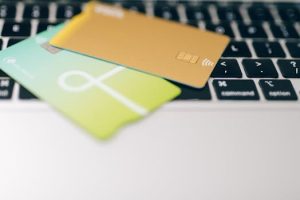Practical Strategies to Master Financial Independence
Financial independence is the ultimate goal for many individuals. It is the state of achieving enough income to cover your living expenses without being reliant on a job or traditional employment. It is a dream that can grant you the freedom to pursue your passions and live life on your own terms. However, mastering financial independence is no easy feat. It requires a combination of discipline, knowledge, and practical strategies to achieve and maintain. In this article, we will discuss some key steps to help you achieve and master financial independence.
Assess Your Current Financial Situation
The first step in mastering financial independence is to assess your current financial situation. In order to make progress, you need to know where you currently stand. This involves taking a look at your income, expenses, debts, and savings. It may be helpful to create a budget to track your expenses and identify areas where you can cut back. By understanding your current financial situation, you can begin to make necessary changes and set realistic goals.
Reduce Your Expenses
Cut Back on Unnecessary Purchases
One of the best ways to achieve financial independence is to reduce your expenses. This means cutting back on unnecessary purchases and finding ways to save money. Take a look at your monthly expenses and identify areas where you can make some changes. For example, do you really need that daily latte? By cutting out small expenses, you can save a significant amount of money over time. This money can then be used to invest or pay off debt, bringing you closer to financial independence.
Downsize Your Living Space
If one of your long-term goals is to become financially independent, you may want to consider downsizing your living space. This is especially beneficial if you currently live in a larger house or apartment that comes with a high mortgage or rent. Downsizing can free up a significant amount of money that can be used towards savings or investments.
Invest Wisely
Investing is a key component of achieving financial independence. By wisely investing your money, you can generate passive income that can help you reach your financial goals faster. It is important to do thorough research before investing and diversify your portfolio to minimize risks. You may also want to consider seeking the help of a financial advisor to guide you in making sound investment decisions.
Pay Off High-Interest Debt
High-interest debt can be a major obstacle in achieving financial independence. The interest charges on credit card debt, for example, can add up quickly and make it difficult to save money. That is why it is important to make paying off high-interest debt a priority. This will not only save you money in the long run but also free up more of your income to put towards savings and investments.
Be Open to Multiple Streams of Income
While having a steady job may provide a stable income, it is important to also be open to other streams of income. This could include freelancing, starting a side business, or investing in rental properties. Multiple streams of income not only provide extra money to put towards your financial goals but can also act as a safety net in case of unexpected job loss.
Be Patient and Stay Disciplined
Mastering financial independence is not a quick process. It requires patience and discipline. It is essential to continue setting goals and staying on track, even when progress may seem slow. Be realistic in your approach and remember that every small step counts towards the ultimate goal of achieving financial independence.
Conclusion
In conclusion, achieving and mastering financial independence takes time, patience, and dedication. By assessing your current financial situation, reducing expenses, investing wisely, paying off debt, and having multiple streams of income, you can set yourself on the path towards financial independence. Remember to stay disciplined and be patient, as the rewards of financial independence will be worth the effort in the long run.









